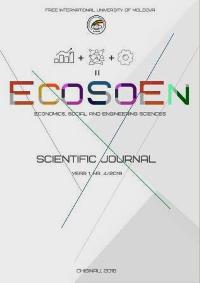Rolul autoeficienței în afirmarea motivației de realizare a tinerilor din mediul universitar
The role of self-efficacy in affirming the achievement motivation in the university students
Author(s): Svetlana Rusnac, Ioana AșevschiSubject(s): Social Sciences, Psychology
Published by: Universitatea Liberă Internațională din Moldova
Keywords: self-efficacy; failure; motivation; achievement motivation; success;
Summary/Abstract: The purpose of the present study is to verify why some university students showperseverance and face academic and personal challenges in order to achieve success, while othersdo not fully involve themselves such avoiding the failure? Is self-efficacy, as stated by Bandura andother researchers, a central element of motivation and orientation to success? The study sampleconsists of 245 young people, students of I-IV academic year from several universities of Moldova.Two scales were used to verify the formulated hypothesis. The self-efficacy scale of A. Bandura wasused to measure the general and social self-efficacy, for Russian speaking subjects we used theRussian version adapted by Л. Бояринцева and for Romanian speaking subjects the Romanianversion adapted and validated by authors. Also the Achievement Motivation Scale of Mehrabianwas used, the version adapted by М.Ш. Магомед-Эминов for Russian speaking population and theversion translated, adapted and validated by authors for Romanian speaking population. Thestatistical analysis of data demonstrate that achievement motivation is related to the person believeabout its own self-efficacy. One third of the respondents demonstrates a motivational orientation tosuccess, the rest showing the tendency to avoid failure, an extrinsic motive for adaptation toexternal assessment and evaluation. According to data related to self-efficacy less than 8% ofstudents report a high level of general self-efficacy, 2/3 report a medium level, and ¼ a low level.Low level of social self-efficacy was reported by ¼ of respondents, medium level by nearly half ofthe total number of subjects and a high level by 30%. The study results envisage the necessity forthe university teaching stuff and for specialized university services to support and facilitate thedevelopment of student’s intrinsic motivation through enhancing their self-esteem, as well as theirself-efficacy, learning motivation and professional constitution as an important solution forproviding a better quality of initial/professional education to young people.
Journal: EcoSoEn
- Issue Year: 1/2018
- Issue No: 4
- Page Range: 107-116
- Page Count: 10
- Language: Romanian

